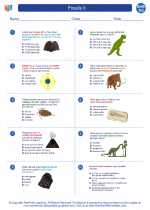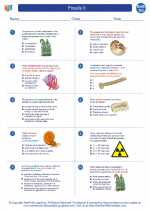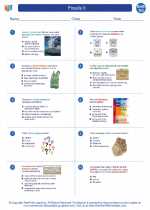Insects
Insects are a diverse group of arthropods, belonging to the class Insecta in the phylum Arthropoda. They are the most diverse group of organisms on Earth, with over a million described species and potentially millions more yet to be discovered. Insects play crucial roles in various ecosystems, serving as pollinators, decomposers, and a food source for other organisms.
Characteristics of Insects
There are several key characteristics that define insects:
- Body Segmentation: Insects have three distinct body segments - head, thorax, and abdomen.
- Exoskeleton: Their bodies are covered by a hard exoskeleton made of chitin, which provides support and protection.
- Antennae: Most insects have a pair of antennae that are sensory organs used for touch, taste, and smell.
- Three Pairs of Legs: Insects have three pairs of jointed legs attached to the thorax.
- Wings: Many insects have wings, which may be one or two pairs, or even absent in some species.
Life Cycle of Insects
The life cycle of an insect typically includes four stages: egg, larva, pupa, and adult. This process is known as complete metamorphosis and is exhibited by insects such as butterflies, beetles, and flies. In contrast, insects like grasshoppers and cockroaches undergo incomplete metamorphosis, where the young resemble the adults but are smaller and lack wings.
Ecological Importance
Insects play a crucial role in various ecological processes. They act as pollinators for many flowering plants, aiding in the reproduction of these plants. Additionally, insects such as ants and beetles are important decomposers, breaking down organic matter and returning nutrients to the soil. Insects also serve as a food source for many animals, forming an essential part of the food web.
Study Guide
When studying insects, it's important to focus on the following key areas:
- Understanding the characteristics that define insects and how these features contribute to their success as a group.
- Exploring the diversity of insect species and their ecological roles in different ecosystems.
- Comparing and contrasting the life cycles of insects that undergo complete metamorphosis versus incomplete metamorphosis.
- Examining the interactions between insects and their environments, including their relationships with plants, other animals, and humans.
- Considering the impact of human activities on insect populations and the potential consequences for ecosystems.
By delving into these areas, students can gain a comprehensive understanding of the importance of insects and their fascinating biological adaptations.



